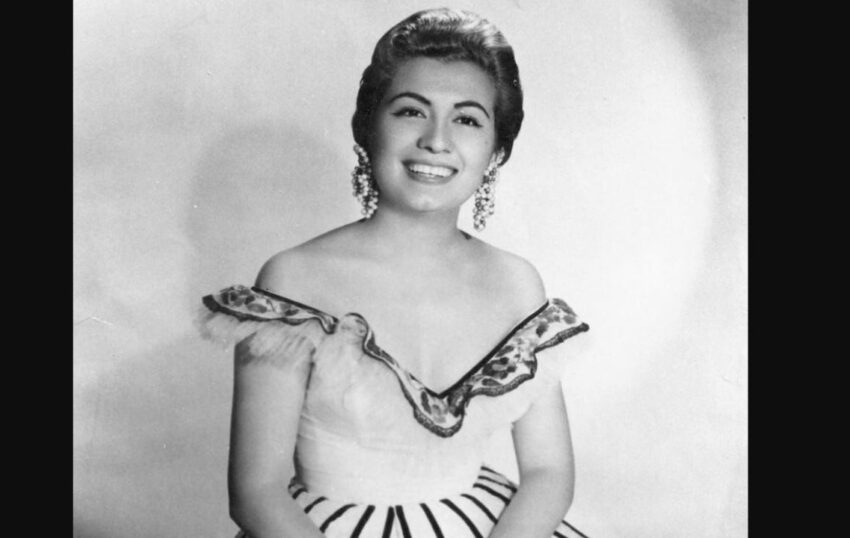The Outrageous Rise of Lola Beltrán, Mexico’s Musical Maverick!

Today, we celebrate the life and legacy of Lola Beltrán, a name synonymous with Mexican music and cultural identity. Born María Lucila Beltrán Ruiz on March 7, 1932, in El Rosario, Sinaloa, Mexico, she rose to become one of the most celebrated singers and actresses in the country’s history, earning the affectionate nickname “Lola la Grande” (Lola the Great).
A Voice That Captivated Generations
Beltrán’s exceptional talent was evident from a young age. Inspired by the traditional music she heard in church, she dreamt of sharing her voice with the world. In 1948, she moved to Mexico City with her mother, determined to pursue her artistic aspirations. Her big break came when she landed a job at a popular radio station, where she began captivating audiences with her renditions of beloved Mexican songs.
Beltrán’s powerful voice and emotive delivery resonated deeply with listeners. She possessed a mastery of both ranchera and huapango music, two vital genres in Mexican culture. Her iconic interpretations of songs like “Cucurrucucú Paloma,” “Paloma Negra,” and “El Sinaloense” solidified her place as a national treasure.
A Legacy in Film and Television
Lola Beltrán’s talents extended far beyond the music stage. Embracing new challenges, she ventured into the world of cinema, debuting in the 1940 Argentine film “El Cantor del Circo.” Throughout the 1950s, 1960s, and 1970s, she graced the silver screen in numerous Mexican films, often collaborating with renowned actors like Pedro Infante, Jorge Negrete, and Antonio Aguilar.
Beltrán’s captivating presence and charisma on screen further cemented her status as a beloved cultural icon. She later transitioned to television, hosting popular musical shows like “Noches Tapatías” and “El Estudio de Lola Beltrán,” captivating audiences with her vibrant personality.
A Global Ambassador of Mexican Culture
Lola Beltrán’s influence transcended national borders. She performed internationally, captivating audiences worldwide with her powerful voice and heartfelt storytelling. Her performances before world leaders served as a testament to the universal appeal of Mexican music and culture.
Beltrán’s dedication to her craft and her unwavering passion for her heritage earned her numerous accolades. She became the first ranchera singer to perform at the prestigious Palacio de Bellas Artes, a testament to her extraordinary artistry. In 1995, she was honored with commemorative postage stamps, recognizing her significant contributions to Mexican music and her role in promoting the country’s cultural heritage on a global stage.
Read: #WhereIsKateMiddleton : Conspiracy Theories Swirl as Princess Remains Out of Public Eye
An Inspiration for Generations
Tragically, Lola Beltrán passed away in 1996. However, her legacy continues to inspire generations of musicians and artists. Her music remains cherished by fans worldwide, and her influence continues to shape the landscape of Mexican music.
Today, on the anniversary of her birth, we remember Lola Beltrán not just as a talented singer and actress, but as a cultural icon who embodied the spirit of Mexico. Her unwavering dedication to her art, her passion for her heritage, and her captivating stage presence continue to inspire and captivate audiences around the globe, ensuring her place as “La Grande de Sinaloa” for generations to come.


